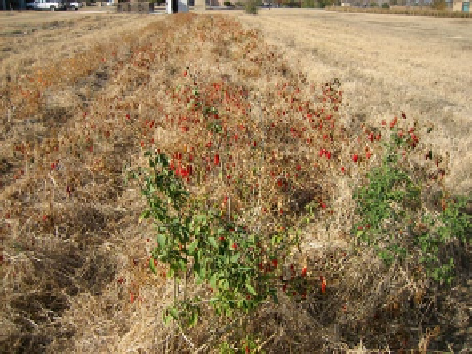Agriculture Reference
In-Depth Information
Fig. 3.7
Cold tolerant pepper
Genetic Improvement Targets
As with many crop plants, vegetables have received considerable attention from
plant breeders and geneticists over the past 150 years. It was in fact a common veg-
etable, garden pea that served as the model for Mendel's remarkable experiments
establishing the principles of trait inheritance and the foundation for the science of
genetics. Dramatic improvements have been achieved for important traits in many
vegetable species. Yield, quality and disease resistance have been the attributes of
high priority for most vegetable breeders. Advances in molecular biology have been
actively applied by plant geneticists in recent years to unravel the complex nature of
important qualitative traits at the DNA level. At the same time, many complex traits
which may contribute to sustainable production have yet to be characterized geno-
typically. In some instances this is due to a lack of phenotypic data or methods to
generate such data. In other cases, there is not a consensus amongst plant scientists
about which traits contribute most to sustainable productivity for a given vegetable
crop. Here we will focus on some efforts to identify traits and specific genes which
impact the resistance of specific vegetable crops to abiotic stresses (Fig.
3.7
).
Breeding for Drought Stress Tolerance
Because most vegetable crops have a relatively high water requirement, drought
and water quality are factors which must be addressed to achieve sustainability in
most production regions. Genetic improvement for both drought and salt tolerance
is the key to sustaining productivity in many cropping systems around the world.
The demand for high quality water by urban and industry groups, puts pressure
on farmers to use less for irrigation. Natural and human induced salinity of irriga-
tion supplies also limits crop selection and negatively impacts yield and quality.

